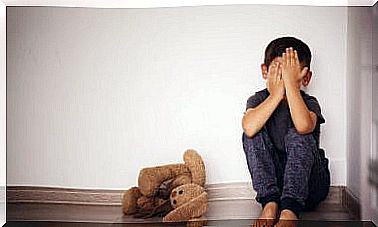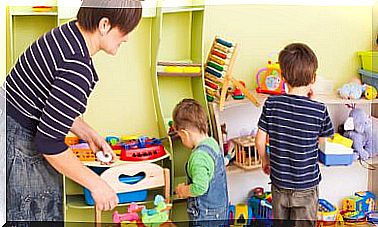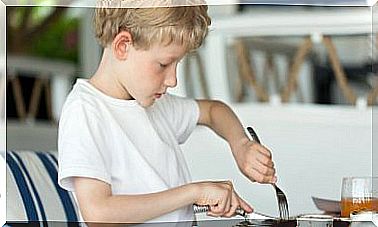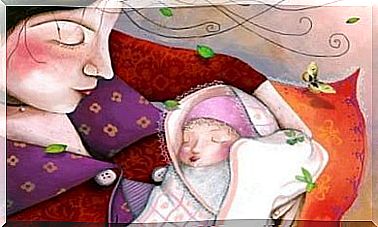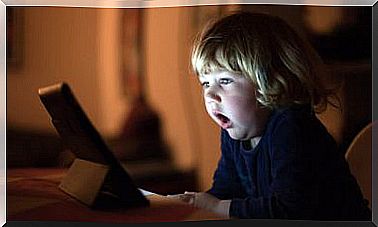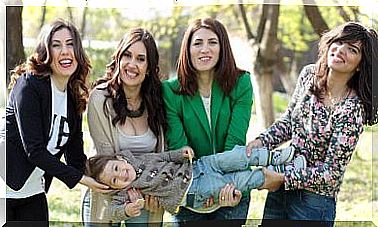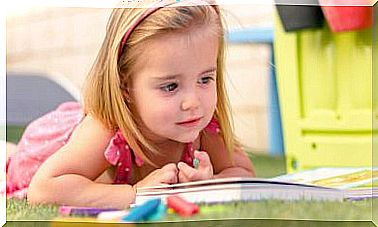My Baby Always Vomits After Eating, Should I Be Concerned?
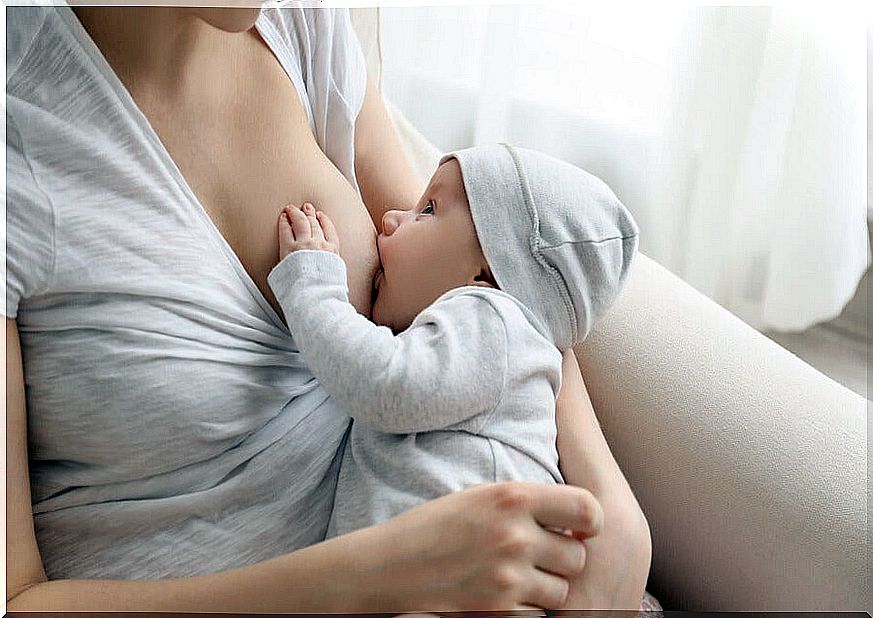
When a baby vomits after eating there can be many point and usually temporary causes for discomfort. However, when it persists over time, intensifies and occurs along with other symptoms, it is necessary to see a doctor as soon as possible.
Up to 6 months of age, it is normal for a baby to vomit occasionally after eating. This is a common reaction to milk. However, if reflux occurs on a continuous basis, something is wrong with your digestive system.
This should not be a reason to be alarmed but to observe and occupy ourselves. In fact, almost all the clinical pictures that obey this symptom are usually sporadic and treatable from the pediatrics.
As parents, our first task will be to detect the cause of vomiting. This will determine the type of treatment or care that we must offer the child. Let’s see below what are the reasons that generate this bodily reaction.
Sometimes the problem is in how we feed the baby
In principle, all children vomit due to the poor development of their digestive system. Therefore, a bad position or a wrong diet leads to regurgitation. In this case, the correct thing to do is to modify the form of feeding.
Poor posture during or after feeding can cause reflux. Also, a slight entry of air through the duct also causes this type of symptom. As a preventive measure, it is necessary to do our best to help the little one to expel gas.
On the other hand, the excess of food and the constitution of the food are also causes of returns. It is necessary to pay great attention in some aspects like the size of the bottle, the thickness of the formula of the milk product and the quantity; It is also necessary to remember that it is not advisable to overindulge in the food that is given to the baby.
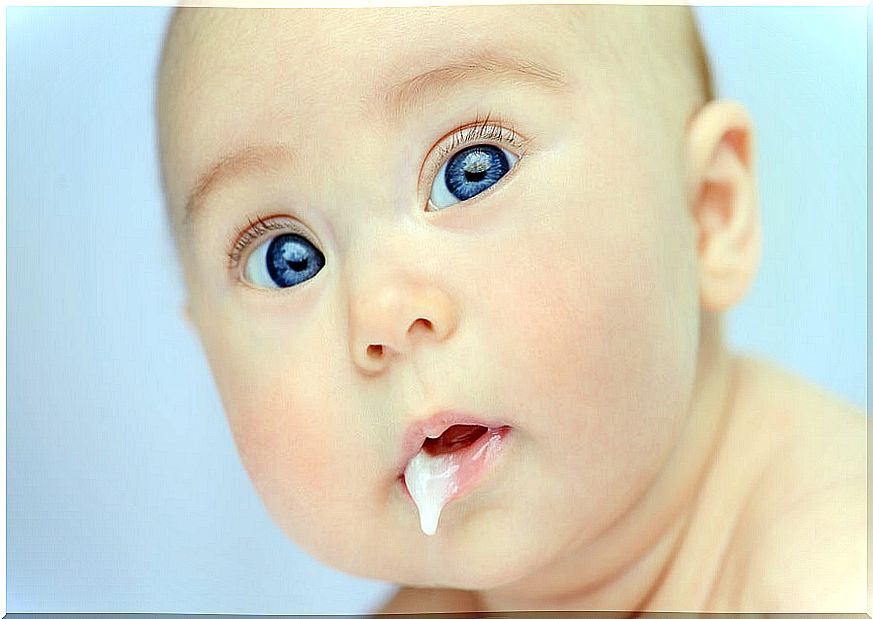
Allergies and stuffy nostrils
Just as the air intake affects, its lack can also motivate vomiting. A child with a stuffy nose may spit up as a reflex to improve breathing. This often happens with little ones who suffer from sinusitis.
Similarly, it can occur due to allergies and intolerances to milk on the part of the newborn. Lactose or the milk protein in question would be the main culprits. If so, it is highly recommended to change the formula.
Beyond the doctor prescribing a new milk or medicine, we will also have to modify the way we eat. The control of the flow of the food and its distribution in several intakes will be quite favorable.
In practice, if the little one vomits after eating constantly and repeatedly, he could suffer from some condition. This is especially considered when the reaction continues to occur between 10 and 14 months of age.
Gastroesophageal reflux should be ruled out
Gastroesophageal reflux is caused by the poor maturity of the lower esophageal sphincter. It is a muscle that allows food to pass through the entire esophagus and into the stomach; failing to function properly, food is returned.
This condition is usually accompanied by other symptoms. If your little one reflexively arches his back when eating, reflux could be his problem. Also, constant cramps, coughing, and weight loss are other signs to watch for.
Basically, the solution is to create better conditions in the way the affected baby is fed. There are also diagnostic tests and treatments that will lower the acid level in the child’s esophagus.
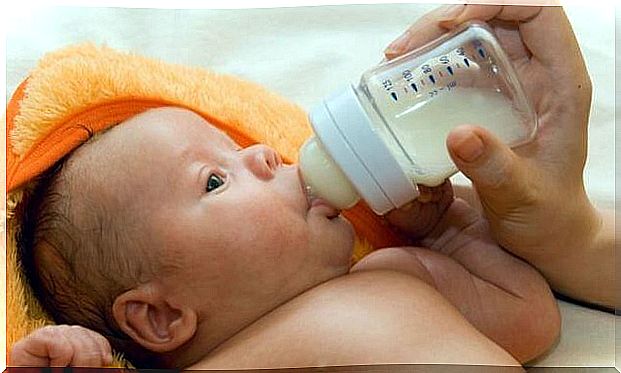
My baby vomits after eating: pyloric stenosis?
Another important aspect to consider is that Pyloric stenosis is the thickening of the opening between the stomach and the small intestine, which does not allow the passage of food. It should not be confused with gastroesophageal reflux. In the case of stricture, the problem is a widening of the esophagus, which causes the child to regurgitate food.
The vomiting of this pathology is characterized by being very acidic and by presenting in a segmented manner, like a series of “shotgun blasts”. Only in the most extreme cases could surgical intervention be used to correct this defect.
The good news is, even for these two conditions, there is always a solution. It is really difficult to associate the recurrence of vomiting with a more serious condition ; and much more if the infant is less than six months old.
In summary, if our baby vomits after eating on a recurring basis, the first thing is observation. It should be noted that only the doctor can indicate the treatment to follow. Finally, improving the way you eat will help your little one a lot.

